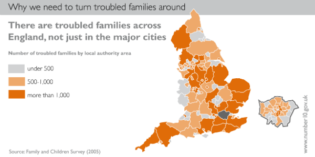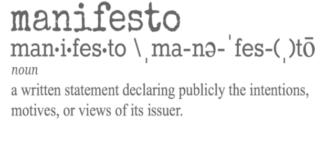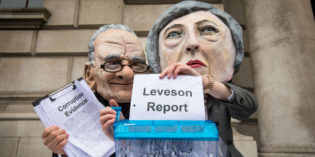
The Irish Citizens’ Assembly on the 8th Amendment is a model for participatory democracy, which other democratic countries should follow
Ireland’s referendum to repeal the 8th Amendment of its constitution, and so liberalise the country’s abortion laws, was preceded by a Citizens’ Assembly which recommended these reforms. This form of democratic participation, which crucially was state funded and informed the Irish government’s approach, is a model for producing better democratic decision making, argues Jack Bridgewater.

The UK government’s imaginative use of evidence to make policy
It is a frequent complaint by public policy academics that the UK government does not follow evidence-based policy, and instead cherry-picks research to further its political priorities to produce ‘policy-based evidence’. However, writes Paul Cairney, evidence is used to inform policy in more ways than these two opposing categories suggest. As illustrated by family intervention initiatives, the cynical and short-term use of evidence to make policy in one arena can provide cover for more sincere and long-term policymaking in another.

Are citizens good judges of government performance? Evaluations of promise keeping by governing parties
Only a minority of UK citizens think that politicians generally keep their election promises. However, research by Robert Thomson and Heinz Brandenburg indicates that the public are good at evaluating whether politicians have kept specific policy pledges, but this is affected by their pre-existing levels of distrust in politicians and in particular parties.

Ireland votes to repeal the 8th: will Northern Ireland be next to liberalise its abortion laws?
Ireland’s abortion referendum on 25 May resulted in a victory for the ‘Yes’ side campaigning to reform the country’s strict abortion laws by repealing the Eighth Amendment of the Irish constitution. For Jennifer Thomson, the result underlines a dramatic transformation that has taken place in Irish society over recent decades, however it also shines a light on Northern Ireland, which now looks increasingly isolated in its lack of liberalisation around abortion and LGBT rights.

The many roles of manifestos at the subnational level in British general elections
Alistair Clark and Lynn Bennie assess the roles of national party manifestos across Britain, Scotland and Wales in UK-wide general elections, and illustrate the multiple functions these documents perform in complex multilevel systems of government.

The Scottish Parliament has rejected the Brexit bill – are we heading for a second independence referendum?
The Scottish Parliament has denied consent to the EU Withdrawal Bill. Akash Paun argues that the Prime Minister now faces an unpalatable choice: concede defeat or help the SNP make the case for a second independence referendum.

Repeal the 8th amendment to allow abortion in Ireland – this constitutional experiment has failed
On 25 May, the Republic of Ireland votes in a referendum to decide whether to repeal the 8th amendment of its constitution, which effectively outlaws abortion. Fiona de Londras explains how the 8th amendment works, and what the proposed legal changes are.







 Democratic Audit's core funding is provided by the Joseph Rowntree Charitable Trust. Additional funding is provided by the London School of Economics.
Democratic Audit's core funding is provided by the Joseph Rowntree Charitable Trust. Additional funding is provided by the London School of Economics.